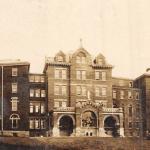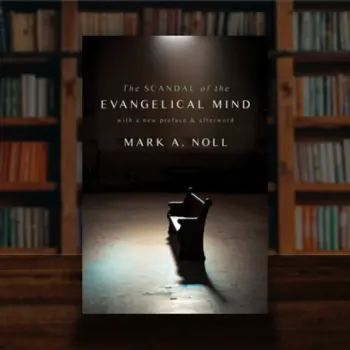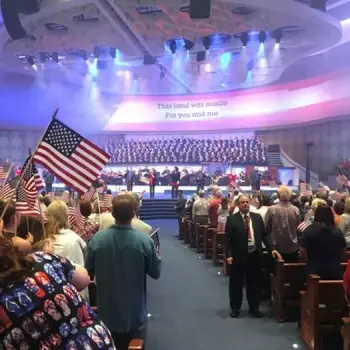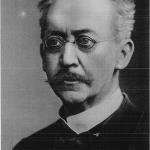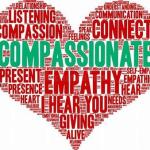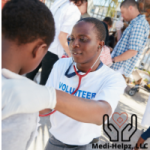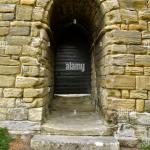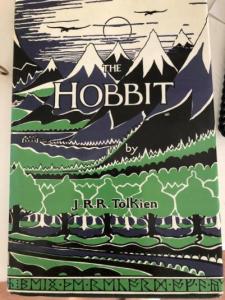 I have served on academic faculty since 2003. I have participated in a LOT of job searches–believe you me. I have watched candidates perform exceptionally well during interviews, and I have watched candidates fall flat on their faces. For example, the teaching demonstration that included around 60 power point slides and was still going strong at 50 minutes when it was supposed to be limited to 20 minutes (yes this happened). Or the candidate who made so many factual errors during first-round interviews that the committee just drew an ‘x’ through the name. Or the candidate glaringly ignorant about the prospective department and institution, lacking even familiarity with the types of courses they would be expected to teach. What never fails to surprise me about the interview process (from the perspective of the hosting department) is when the BEST candidates on paper perform abysmally during the research presentations and teaching demonstration. As graduate program director, I always cringe inwardly when this happens to PhDs fresh on the market. Fair or not, it is hard not to connect bad interview performances with poor preparation by their doctoral programs.
I have served on academic faculty since 2003. I have participated in a LOT of job searches–believe you me. I have watched candidates perform exceptionally well during interviews, and I have watched candidates fall flat on their faces. For example, the teaching demonstration that included around 60 power point slides and was still going strong at 50 minutes when it was supposed to be limited to 20 minutes (yes this happened). Or the candidate who made so many factual errors during first-round interviews that the committee just drew an ‘x’ through the name. Or the candidate glaringly ignorant about the prospective department and institution, lacking even familiarity with the types of courses they would be expected to teach. What never fails to surprise me about the interview process (from the perspective of the hosting department) is when the BEST candidates on paper perform abysmally during the research presentations and teaching demonstration. As graduate program director, I always cringe inwardly when this happens to PhDs fresh on the market. Fair or not, it is hard not to connect bad interview performances with poor preparation by their doctoral programs.
Indeed, I think at least half of the poor interview performances boil down to lack of preparation (the other half probably stems from a combination of nerves and the unpredictable mixing of academic personalities during the process). Interviewing is a skill that can be learned. I really do believe that even average applicants can learn how to shine during interviews.
My last post, if you remember, interviewed two recent PhD graduates who shone during the interview process. Both received tenure-track job offers. If you missed it, you can read about their experiences here and listen to the interview here. We received some great feedback from the post, including one reader who asked us two really important questions. First, Why did we focus so much on the cover letter? and Second, Why did we NOT talk about preparing for interviews?
Today I am going to answer those questions (again with the help of some successful PhD students). My goal is to help both mentoring faculty and prospective candidates. I received help from both Lynneth and Elise, as well as from another of our recent doctoral graduates , Nicholas Pruitt (Visiting Assistant Professor at Eastern Nazarene University).
The short answer to the second question (why did I not talk with Lynneth and Elise about preparing for interviews) is we simply ran out of time during our recording session (it was on my list). At the same time, however, we DID talk about preparing for interviews through our discussion of writing cover letters.
Let me explain, and then I have some advice for the interview process offered by Lynneth, Elise, and Nick.
Cover letters are indeed important pieces in the job application, although it is true that many faculty just scan them (sorry….). Cover letters introduce the candidate and draw attention to why they are a good fit for the position. But I think the most important part of writing cover letters is how they can help prepare the prospective candidates. Cover letters, if they are done correctly, force the applicant to investigate the position and its institution. They force the candidate to articulate why they are a good fit for the position, department, and larger institution. They also force the candidate to reflect on their own teaching philosophies and articulate what makes them unique as both as scholar and a teacher.
The cover letter, in other words, can help candidates draft a script for the oral interviews.
As for advice about how to prepare for interviews, I strongly recommend practice. At Baylor we do two very practical things to help our candidates.
First, the graduate school offers mock interviews for all Baylor graduate students. Students can sign up for slots each spring in which they submit a cover letter and C.V., and then are interviewed by volunteer faculty who pose as provosts, deans, and department chairs. I cannot stress how valuable an experience this is for students. I have participated in these mock interviews three times for six students. The interviews are recorded so that the students can watch themselves later. At the end of each interview, the mock committee talks with the candidate about what they did well and what they need to work on. This way, when a candidate gets to an on campus interview, it isn’t the first time they have faced that situation.
Second, the history department will assemble volunteer faculty to host both mock department interviews and even evaluate mock research and teaching presentations for students who ask. This is incredibly helpful for our students. I am so thankful to work in a department in which faculty, regardless of their level of participation in the graduate program, are willing to mock interview our graduate students. A the end of each presentation/mock interview, the volunteer faculty debrief the student on what went well and what they need to work on. Again, when our students make it to real interviews, it isn’t the first time they have faced those situations.
Practice interviewing. Practice your elevator speech (summing up the significance of your research in 3 minutes or less). Practice your research talk and teaching demonstration. Practice makes perfect, or at least makes you MUCH better.
For the rest of my advice, let’s turn to our recent PhDs who successfully made it through this process. I asked Lynneth and Elise to talk some about our interview last week as well as to offer, along with Nick, some advice about interviewing. Here is what they said:
Lynneth:
- Cover letters were extremely helpful in developing coherent and concise ways to talk about myself, my teaching, and my research.
- Before every skype interview, I put together a word document with 3-5 minute answers to potential questions about teaching, research, mission fit, and other skills. Also put together a spreadsheet listing current faculty, their specializations, current book projects. Also had a “fast facts” sheet about the school and about the department, a page on the area and local demographics. Finally, had a list of 3-5 questions I had for the school/committee.
- Created brief pitches for around 10 different classes- course themes, course readings, ideas for sample assignments.
- Practice! Do mock skype interviews, mock interviews, mock research demos, mock teaching presentations- had feedback from at least 2 people on every component of my interview prep.
- Consider the logistics- what do you need to wear/do/bring to be able to make a good impression at every moment of every day? (for me, packed chocolate covered coffee beans to ensure I was never caught without caffeine, well-fitted attire that I knew was almost indestructible [colors that didn’t show stains], water bottles, fiction to read in the evenings to relax once I made it back to my room)
- Listen as much as possible. They’re (hopefully) excited about their school and asking good questions gives you a minute to not talk, to listen to what they’re saying, and to learn how to better tailor your conversation to fit the institution/people you’re interviewing with.
Elise:
I viewed the podcast as Lynneth and me sharing the issues and challenges that loomed largest in our job market journey, one of which was obviously cover letters. I agree that the time spent on the cover letters definitely prepared us for interviews. I’d also contend that, while cover letters certainly can’t get you a job or act as the most important piece of the job packet, a bad cover letter can derail job prospects. Moreover, based on our experience and my observation of numerous Baylor grad students, cover letters are a) often the most challenging document to get right and b) often the most time consuming document per application because each has to be tailored. So I think our extended discussion of them serves as a necessary warning of sorts to grad student about to enter the market.
Nick: (and he is focusing on Skype interviews)
1) If given a choice, be intentional when selecting a time to interview. Pick a time when your head is cleared of distractions and you don’t have any immediate deadlines or commitments in your schedule that day.
2) Double check your technology and wifi connections. For one of my interviews, I discovered at the last minute that my home wifi connection wasn’t working, and had to interview over Skype using the wifi connection at Starbucks…not the most ideal place for a job interview.
3) Have some questions on hand. During interviews, candidates are likely to be asked if they have any questions. This is another way a candidate can put their best foot forward by asking questions that demonstrate interest in the institution, pedagogy, or working with potential colleagues.
4) Review your teaching philosophy beforehand so that it is fresh on your mind
5) When applying to Christian colleges, be prepared to respond to questions concerning the integration of faith and learning and how one intends to use their scholarship to aid the church/denomination/community.
Good luck! If you have other thoughts about what would be helpful for you to hear about, please email me! Good luck getting ready for interviews. And for all of you attending the Conference on Faith and History at Calvin in a couple of weeks, I will see you soon.


